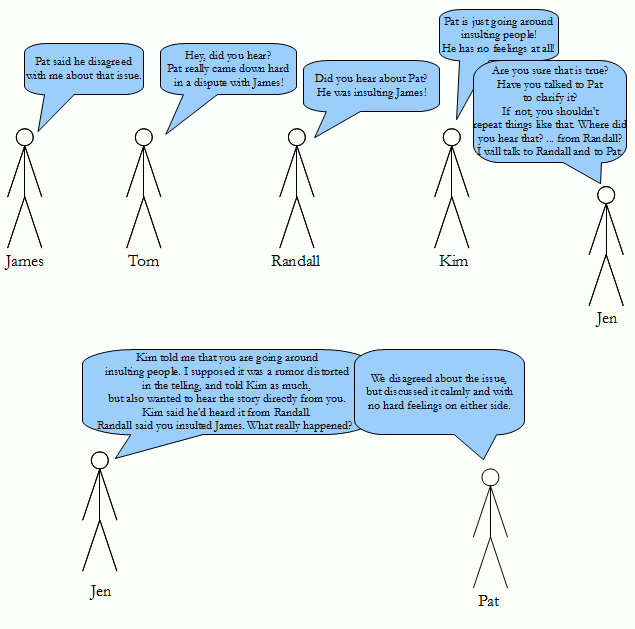Do some persons live and die without ever committing any mortal sins? Recently Fr. John Zuhlsdorf ("Fr. Z") stated that "there is only one woman ever who" was "entirely free of mortal sin throughout their life”. Despite correction by several commentators, he continued to defend his claim, putting forth the arguments that (1) one cannot prove the absence of mortal sin (since God alone knows the heart), (2) "If we say that we have not sinned, we make him a liar, and his word is not in us." (1 John 1:10), and (3) "by definition Original Sin is mortal sin and we all commit it. We all have the guilt of Original sin."
In the past I have also heard somewhat similar opinions from other sources. So, a few remarks on the matter:
(1) The burden is on the one who claims that a person who has done wrong to prove it. If someone claims that St. Thomas Aquinas, for instance, committed a mortal sin, it is up to the one who claims this to prove it. It will not do to say "prove that it's not so!" Granted one cannot directly prove that St. Therese of Lisieux, St. Aloysius Gonzaga, St. Maria Goretti, St. Dominic Savio, Bl. Jacinta of Fatima, etc., never committed a mortal sin, it surely lies on the one who accuses them of having committed mortal sin to prove it. To claim as a fact that someone committed grave evil is objectively slanderous unless one has some way of being sure that they did so. Now Fr. Z seems to suggest having a solid basis for making this claim in the doctrine that grace is a gratuitous gift (we can't know with the certainty of faith if we are in the state of grace), and that we all sin (1 John 1:10). However, and here lies the problem, the saints and doctors of the Church do not agree with him in his interpretation of these doctrines and their implications.
(2) From the Fathers through the Council of Trent and beyond, the assumption is that some, but not all, fall into sin after baptism. It is clear that grace suffices to in fact persevere a substantial length, and indeed an entire life, without sin. It may be a minority, but it is supposed to be at least some.
I quote also St. Thomas Aquinas, responding to an objection that grace cannot be a habit in the soul, since a habit is something stable and permanent, whereas grace is easily lost, since it is lost through a single act of mortal sin: "Although grace is lost by one act of mortal sin, it is not easily lost, because it is not easy for someone who has grace to do such an act, on account of his inclination to the opposite action, as the Philosopher says in Ethics V, that it is difficult for a just man to do unjust deeds." (De veritate q. 27, a. 1, ad 9). If mortal sins are not frequent in all Christians, then you can be sure that some have died without committing any mortal sins (since some die a few years after reaching the age of reason, some a single year afterwards, some a few months afterwards, etc.), unless, far from positing the traditional providence of God that preserves some people from any mortal sin ("caught up lest evil change his understanding or guile deceive his soul." Wis 4:11), one posits a very special providence of God seeing to it that everyone other than Mary falls into mortal sin, a rather problematic hypothesis.
(3) Moreover, we have positive, and strong evidence that individual persons have lived without committing any mortal sin: certain persons, who have been canonized as saints by the Catholic Church, have testified that other persons (also later canonized as saints by the Catholic Church) lived and died without committing any mortal sin. For example, St. Robert Bellarmine testified it of St. Aloysius Gonzaga, and St. John Bosco testified it of St. Dominic Savio. This view of St. Aloysius life is moreover affirmed by the liturgy itself, in which we pray, "O God, giver of heavenly gifts, who in Saint Aloysius Gonzaga joined penitence to a wonderful innocence of life, grant, through his merits and intercession, that, though we have failed to follow him in innocence, we may imitate him in penitence." The implication of this prayer is that St. Aloysius preserved baptismal innocence, and that the vast majority of persons did not. (Updated correction: Or the prayer may mean by "innocence" that he committed not only no mortal sin, but also none or next to none fully deliberate venial sin; then the implication would be that the vast majority of persons have committed at least some fully deliberate venial sin.)
Leaving aside the theological and rational arguments (which are in favor of some living and dying without committing mortal sin), if one has to choose between St. Robert Bellarmine, St. John Bosco's, and the Roman liturgy's view, and the personal interpretation of another individual, one would be wise to side with the saints and with the liturgy of the Catholic Church.
(4) Regarding St. John's statement that "If we say that we have not sinned, we make him a liar" (1 John 1:10), I simply recall his own statement in the same epistle, "All wrongdoing is sin, but there are some sins that are not mortal," as well as "No one born of God commits sin; for God's nature abides in him, and he cannot sin because he is born of God." (1 John 3:9)". The sins we are commit, the "daily sins" (St. Augustine), are in most cases venial sins, and John is including these when talking about sin when he says "If we say that we have not sinned, we make him a liar."
(5) Regarding original sin, the Catechism of the Catholic Church teaches explicitly that original sin does not have the character of personal guilt in us, nor is it "committed" by us: "[Original sin] is a sin which will be transmitted by propagation to all mankind, that is, by the transmission of a human nature deprived of original holiness and justice. And that is why original sin is called "sin" only in an analogical sense: it is a sin "contracted" and not "committed" – a state and not an act.
Although it is proper to each individual, original sin does not have the character of a personal fault in any of Adam's descendants (Catechism of the Catholic Church, nn. 404-405)"
In any event, even if one could theoretically call original sin "mortal sin" by analogy, that is not the traditional Catholic usage of "mortal sin" (Otherwise it would be senseless to ask, for instance, whether someone could be in original sin and venial sin, without mortal sin, as St. Thomas Aquinas does), nor is it the usage of the Catechism of the Catholic Church.
To sum up, the testimony of the saints and of the Church is that grace can and does indeed preserve some people (and not just the Blessed Virgin Mary) from all mortal sin, and also points out some concrete saints whom grace has so preserved from mortal sin throughout their lives.
 I am a diocesan priest in the parish of Cyrill and Method in the Archdiocese of Vienna, and a teacher at the
I am a diocesan priest in the parish of Cyrill and Method in the Archdiocese of Vienna, and a teacher at the 
